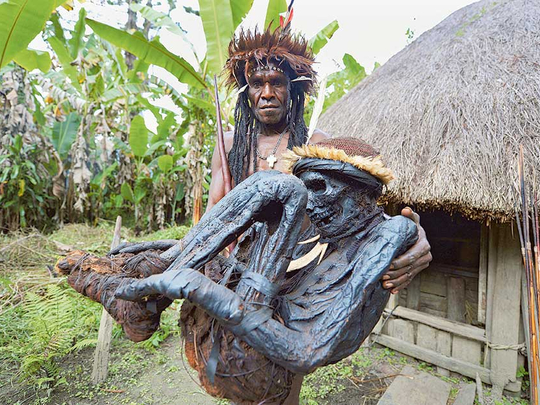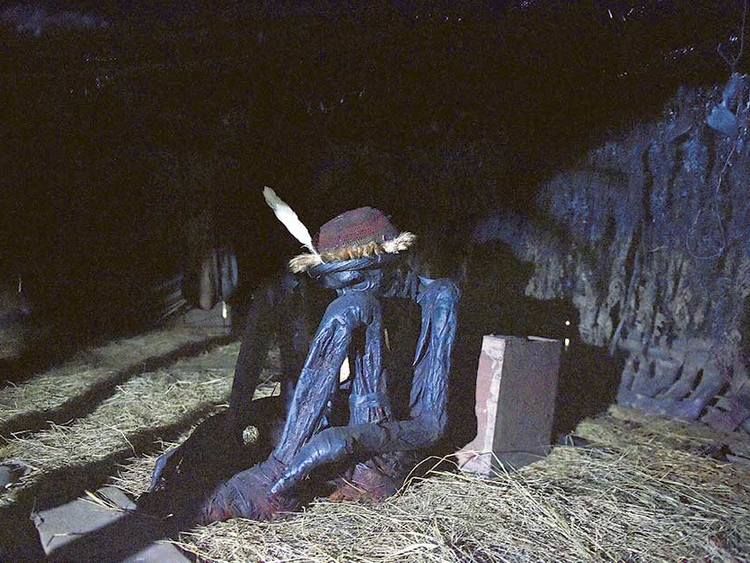Wamena, Indonesia: Cradling the centuries-old remains of his mummified ancestor, tribe leader Eli Mabel lays bare an ancient tradition that has all but vanished among the Dani people in the Papuan central highlands.

The tiny, blackened, shrunken figure he carries was Agat Mamete Mabel, the chieftain that ruled over this remote village in Indonesian Papua some 250 years ago.
Honoured upon death with a custom reserved only for important elders and local heroes among the Dani people — he was embalmed and preserved with smoke and animal oil.
Nine generations on and his descendant Eli Mabel is the current chieftain in Wogi village — an isolated hamlet outside Wamena that can be reached only by hiking and canoe.
He said the exact age of Agat Mamete Mabel was not known, but told AFP this ancestor was the last of the village to receive such a funeral. Once common among his forebears, the ritual method of smoke embalming was no longer practised, he explained.

The mummy, decorated with pig tusks slung around the torso, a feathered headpiece, and traditional penis gourd rests in a hut known as a “honai”.
This wide domed, thatch-roofed hut is tended year round by a select few villagers who keep a fire burning to ensure the corpse remains dry and preserved.
The ancient Dani tribes in Indonesia’s half of the island of New Guinea were cut off from the outside world until well into the 20th century. Their homeland in the Baliem Valley was isolated by steep, rugged valleys and dense highland forest.
Today, the region remains one of the poorest in Indonesia. Many tribes rely on tourism, their unique customs, traditional dress and rituals attracting visitors to their remote villages.